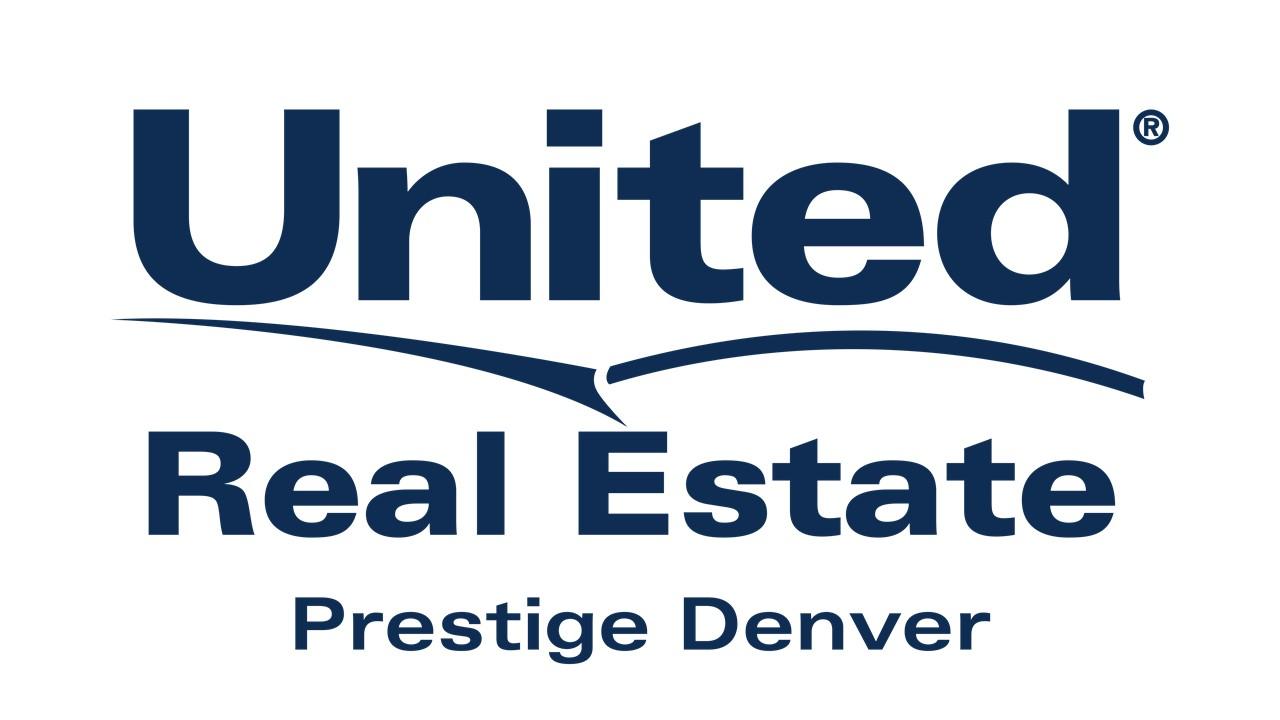
30 minute read
Buyer Advisory COLORADO REAL ESTATE
from Colorado Real Estate Buyer Advisory: Bryan Messick, REALTOR® United Real Estate Prestige Denver
Buyer Advisory COLORADO REAL ESTATE

Compliments of Bryan Messick, Realtor® 303-378-7677 Bryan@TeamUnitedDenver.com

Introduction
This Buyer Advisory is intended as a resource for buyers of real estate in Colorado as they prepare to contract for, and close on, Colorado real property. It is designed to assist a real estate buyer in understanding many of the important documents and other considerations they will encounter before, during and after the sales transaction.
WHILE THIS ADVISORY IS INTENDED AS A GENERAL OVERVIEW OF COMMON AND IMPORTANT BUYER CONSIDERATIONS IN A COLORADO REAL ESTATE TRANSACTION, IT IS NOT INTENDED TO BE COMPREHENSIVE.
Colorado REALTORS® provide valuable services to property buyers seeking to identify, contract, and close on real estate. As real estate licensees in Colorado, REALTORS® may advise buyers on the Colorado Real Estate Commission approved contract forms, assist buyers in identifying available real estate, consult with buyers on contract details, prepare contracts and other documents, negotiating the various transaction details, and assist the buyer with their contract performance.
A COLORADO REALTOR® IS NOT QUALIFIED OR LICENSED TO DISCOVER PROPERTY DEFECTS, EVALUATE THE PHYSICAL CONDITION OF A PROPERTY, PROVIDE LEGAL OR TAX ADVICE, OR OTHER SERVICES BEYOND THE SCOPE OF THEIR REAL ESTATE LICENSE.

This Buyer Advisory is divided into three sections. Section 1 will describe the various transaction documents and Colorado Real Estate Commission approved contract forms that a buyer may encounter during a Colorado real estate transaction. Section 2 will describe many of the common seller disclosure considerations that a buyer may receive from a seller during a Colorado real estate transaction. Section 3 will describe other general considerations that a buyer may have during a Colorado real estate transaction.
EXCLUSIVE RIGHT TO BUY CONTRACT (“BUYER EXCLUSIVE”)
This is one of the first contract documents that a buyer will likely encounter during the real estate sales process. The Buyer Exclusive establishes the contractual relationship between the REALTOR® and the buyer and creates rights and obligations for each party. In most cases, the buyer and the REALTOR® will be utilizing the Colorado Real Estate Commission approved contract which will establish a variety of details regarding the brokerage relationship between the buyer and the REALTOR®. These details may include the term of the relationship, defined scope and scale of property search area, type(s) of property, services provided by the REALTOR®, commissions payable, etc. It is important that a buyer thoroughly understands the Buyer Exclusive and the various rights and responsibilities it creates for both the seller and the REALTOR®. In most cases, the buyer will be obligated to work exclusively with and through the REALTOR® on the defined property search during the term of the contract.
MLS SHEETS/PROPERTY AVAILABILITY
During the early stages of the buyer’s engagement with their REALTOR®, the buyer will likely begin receiving information regarding properties that may be available within the buyer’s parameters as described in the Buyer Exclusive. Often, this information will be distributed to the buyer through the MLS on behalf of the buyer’s REALTOR®. While generally accurate, MLS information is maintained and updated by MLS participants and all property details should be specifically verified by the buyer. Moreover, the MLS is an advertising platform and cannot be exclusively relied upon for accuracy or to create any contractual obligations between the seller, buyer and/or broker. The buyer should also be aware that, while the MLS is likely the most complete and comprehensive source of available properties, not every available property is listed on the MLS.
SELLER’S PROPERTY DISCLOSURE
In a Colorado real estate transaction, a seller is obligated to provide disclosures to a prospective buyer regarding known property conditions. While seller disclosure obligations may be created by Colorado statute, case law, and/or the sales contract, it is critical that such disclosures be made in writing. The most common manner in which a seller may disclose property conditions to a buyer in Colorado is through the Colorado Real Estate Commission approved Seller’s Property Disclosure form. It is critical that a buyer clearly review and consider the Seller’s Property Disclosure and/or any other written disclosures that the buyer receives from the seller. Generally, a buyer accepts a property subject to any items that have been disclosed to them in writing. Failure to fully review and consider any written disclosures provided by the seller may limit a buyer’s ability to timely object to the item(s) disclosed or pursue other remedies after closing. If a buyer has questions or concerns related to any conditions existing on the property, the buyer should consult with a property inspector or other appropriate experts to fully consider the matter. Additional information regarding property disclosures will be covered extensively in Section 2 of this Buyer Advisory.
LEAD-BASED PAINT DISCLOSURE
In the case of a residential property built before 1978, a buyer will almost certainly receive a lead-based paint disclosure that has been completed by the seller. Most commonly, the Colorado Real Estate Commission approved Lead-Based Paint Disclosure form will be utilized. In this disclosure, which is
required by federal law, the seller will notify the buyer of any knowledge the seller may have related to the existence or testing of lead-based paint on the property. Buyers are advised to acknowledge and review this form in detail. Regardless of the contents of this disclosure, if the buyer has concerns related to the existence of lead-based paint in, on, or around the property, the buyer should engage appropriate experts to fully investigate and consider the matter.
SOURCE OF WATER
Colorado requires that sellers disclose a property’s potable water source (if any) to potential buyers in connection with a real estate transaction. This disclosure often comes in connection with the Seller’s Property Disclosure (above) and/or in connection with a Source of Water Addendum to the sales contract with the buyer. This document notifies the buyer of any applicable potable water sources for the property, including municipal water provider, well, cistern, etc. Even in the event the source of a property’s water may be obvious (municipal water provider), it is still important for the buyer to fully consider any specific concerns the buyer may have in relation to availability or access to water for the buyer’s intended uses.
SQUARE FOOTAGE DISCLOSURE
Another document that a buyer will likely encounter in contracting for the purchase of property in Colorado is the Colorado Real Estate Commission approved Square Footage Disclosure. This is a form that is required to be completed by the seller’s REALTOR® and delivered to both the buyer and the seller. In this disclosure, the REALTOR® will describe the source of any representations that have been made regarding a property’s improved square footage for the purposes of marketing (county records, architectural drawings, broker measurement, prior appraisal, etc.). It is important that the buyer review and acknowledge receipt of this document from the REALTOR® as it will be the basis for describing the property’s square footage for marketing purposes. Buyer is encouraged to independently verify and confirm any representations regarding the square footage of a property they are purchasing.
CONTRACT TO BUY AND SELL (“SALES CONTRACT”)
This is one of the most important documents that the buyer will receive, review, and execute in the transaction. The sales contract establishes the contractual relationship between the seller and buyer and also specifically describes all of the parties rights and obligations for the purchase and sale of the property (price, closing, contingencies, due diligence, etc.). Most real estate sales transactions in Colorado will utilize some version of the Colorado Real Estate Commission approved Contract to Buy and Sell. Typically, the buyer’s REALTOR® will prepare an “offer” on behalf of a buyer. The offer will be a completed Sales Contract (signed by buyer) and presented to the seller for their consideration and (when signed by the seller) acceptance. In preparing the Sales Contract and making and offer, the buyer is committing to a variety of important, time-sensitive obligations that have very important short-term and long-term legal consequences. As such, it is essential that the buyer review and understand every aspect of the Sales Contract prior to buyer’s execution and the presentation of the offer to the seller. Once the Sales Contract is fully executed by the seller and the buyer, it will require both parties to approve any changes or amendments.
PERSONAL PROPERTY AGREEMENT
In connection with some real estate (real property) transactions, personal property is also conveyed from a seller to a buyer. In a typical residential sale, this personal property might include large appliances or other traditional items that can simply be included within the sales contract. In other cases, more unusual or extensive personal property items are included in the contemplated sales transaction (hot tubs, pool tables, furniture, all furnishings, etc.). When extensive, unusual, or high dollar items are included in the transaction, it often creates problems for the buyer in their loan process. If this is the case, another document the buyer may encounter in a transaction is the Colorado Real Estate Commission approved Personal Property Agreement. This is a separate contractual agreement between the seller and the buyer of the “real” property (under the Sales Contract) to also sell additional “personal” property for “fair market value” in connection with the Sales Contract. This Personal Property Agreement comes with independent rights and obligations between the parties and it is important that the buyer fully understands their legal obligations under the agreement before execution. Prior to
signing a Sales Contract, a buyer is strongly encouraged to have a detailed discussion with their lender regarding any intended inclusion of personal property in connection with the real estate transaction.
CLOSING INSTRUCTIONS
Closing Instructions are an agreement between the buyer, seller and the “closing company” (typically, in Colorado, the title company) in which the buyer and seller engage the closing company to provide the settlement services on a real estate transaction. The Closing Instructions give the closing company the authorization to receive the necessary information for the closing and to prepare, deliver and/or record all documents and funds necessary to close the real estate transaction pursuant to the Sales Contract. In Colorado, the preferred Closing Instructions are contained in the Colorado Real Estate Commission approved form. Buyers should review and understand the Closing Instructions prior to executing them at the time the Sales Contract is signed.
TITLE COMMITMENT
The title commitment is a document generated by the title insurance company designated in the Sales Contract. It is a “commitment” by the insurance company to provide title insurance to the buyer (and the buyer’s lender) at closing. The title commitment will very specifically describe what things must be done (or documents provided) prior to the issuance of the insurance policy at closing (“Requirements”). The title commitment will also specifically describe any exceptions to the insurance policy or, things the title insurer will not insure (“Exceptions”). The title commitment is one of the most important documents in a transaction for the buyer to review and thoroughly consider. The Exceptions to the title commitment can include a wide variety of explicit and complicated legal documents that can have a very significant impact on a buyer’s ownership, use, enjoyment, and rights to a property. Under a typical Sales Contract, the buyer will have an opportunity to object to matters that have been required or excepted by the title commitment. Alternatively, a buyer may have
the right to terminate the Sales Contract due to items that are reflected by the title commitment. In any case, the buyer must understand that the title commitment is a very important transaction document with extensive legal implications that can impact fundamental aspects of a buyer’s ownership of the property. The buyer should also recognize that advice and interpretation of the title commitment is a legal function that a Colorado real estate broker is not licensed to perform. If the buyer has questions regarding the title commitment, its requirements, or ANY OF THE EXCEPTIONS, they are advised to consult with a Colorado attorney prior to the expirations of any title objection deadlines that may be in the Sales Contract.
In the event the real estate is located in a common interest community (“CIC”), it is likely that the Sales Contract will commit the seller to deliver a very explicit set of documents to the buyer for the buyer’s review in connection with purchasing the real estate. Generally, a common interest community is a community with mandatory assessments on property owners within the community (the most common example would be a condominium). Due to the very specific rights, restrictions, obligations, and/or other ownership limitations that some CIC documents impose on property owners with the community, the buyer should carefully review and consider all of the CIC documents associated with the real estate. If the buyer has questions regarding the CIC documents, their limitations, applicability, obligations, financial considerations, etc., they
are advised to consult with a Colorado attorney prior to the expirations of any CIC objection deadlines that may be in the Sales Contract.
DUE DILIGENCE DOCUMENTS
Depending on the type of real estate transaction (residential, commercial, investment, etc.), a seller may be required to provide a wide variety of due diligence documents to the buyer pursuant to the terms of the Sales Contract. At a minimum, this could include copies of any agreements related to the property that the seller has with any third parties (tenants, contractors, vendors, solar providers, etc.) that may impact the buyer’s use/ownership of the property. It could also apply more generally to property records that the seller may possess such as building plans, environmental reports, inspection reports, permits, etc. The buyer should clearly understand what documents may be applicable to the seller’s delivery obligations under the Sales Contract and carefully review and consider any of the documents that may have an impact on the buyer after closing on the property. If the buyer has questions regarding the due diligence documents and their impact on the buyer, buyer is advised to consult with their REALTOR®, a Colorado attorney, or other appropriate expert prior to the expirations of any due diligence objection deadlines that may be in the Sales Contract.
POST-CLOSING OCCUPANCY
In certain situations, a seller and buyer may negotiate for the seller to remain in possession of the property for a certain period after the sale to the buyer. In that scenario, a seller essentially becomes a “tenant” and the buyer becomes the “landlord.” If a post-closing occupancy is required, the most common way that a buyer and seller might contract for this additional time is using the Real Estate Commission approved Post-Closing Occupancy Agreement. It is important for the buyer to understand that the Post-Closing Occupancy agreement is a separate contract between the buyer and seller that creates different rights and obligations between the parties. The term of the Post-Closing Occupancy agreement is limited to 60 days. Beyond 60 days, the buyer is advised to consult with their lender to ensure compliance with any loan terms or requirements.
CLOSING STATEMENT
In connection with the closing, the buyer will receive a Closing Statement for their review. The final closing statement is typically prepared by the closing company and should be available for the buyer’s review prior to closing. On the Closing Statement, the buyer will see a ledger format with their debits and credits for the transaction reflected as actual numbers. All of a buyer’s “debits” (purchase price, fees, prorations, transfer costs, etc.) will be offset against their “credits” (earnest money, loan, concessions, prorations, etc.) to clearly delineate their final settlement obligation. Prior to closing, and certainly before signing any closing paperwork, the buyer should thoroughly review the Closing Statement to make sure that it is accurate and reflects all of the parties agreements pursuant to the Sales Contract and any amendments.
CLOSING STATEMENT
DEBITS $325,000
CREDITS $225,000
FINAL $100,000
Every Colorado Real Estate Commission approved Sales Contract begins from the premise that the seller is conveying the property to buyer “in an ‘As Is’ condition, ‘Where Is’ and ‘With All Faults’” (Sales Contract Paragraph 10.2). In other words, buyers MUST clearly understand that every contract is effectively “as is” unless the buyer and seller have negotiated alternative provisions within the contract itself.
ADVERSE MATERIAL FACTS/PROPERTY INSPECTION
Despite the “as is” nature of the Sales Contract, it is critical for the buyer to understand that the contract also requires the seller to disclose to the buyer, in writing, “any adverse material facts actually known by seller.” A seller’s failure to disclose known adverse material facts to a prospective buyer consistent with the contractual commitment they are making could create very significant and long-term legal rights for a buyer against the seller in a transaction (well beyond the closing of the transaction). Alternatively, upon receiving a completed Seller’s Property Disclosure (as described in Section 1 above) or any other written disclosures from the seller, the buyer should comprehensively review and consider the contents of such disclosure(s) with appropriate experts. Buyers should also have a clear understanding of any limitations on the seller’s contractual disclosure obligations as well as their own obligation/rights to perform a full inspection of the property and its condition. A full discussion of the seller’s “adverse material fact” disclosure standard and a test to determine whether or not a specific property condition is an “adverse material fact” may be found in Colorado Real Estate Commission Position Statement 46. If the buyer has questions regarding the seller’s disclosures, a property’s condition, or property inspection rights, the buyer is advised to consult with their REALTOR®, a Colorado attorney, or other appropriate expert prior to the expiration of any appropriate objection deadlines that may be in the Sales Contract.
ENVIRONMENTAL
Indoor environmental conditions may have a very significant impact on the health and safety of a property. Such conditions may include mold, radon gas, carbon monoxide, asbestos, methamphetamine contamination, etc. While any of these conditions, if known to the seller, would require clear, written disclosure to a buyer, it is not uncommon for a seller to be unaware of the condition. A buyer with suspicions or concerns related to any indoor environmental conditions that may be impacting the property is encouraged to engage specialty consultants to test for and identify the presence of any indoor environmental conditions that may be impacting the real estate.
SUBSEQUENT CHANGE IN CONDITION(S)
The Sales Contract also requires that the seller update the buyer (in writing) if there is a change in the condition of the property or inclusions during the contract period. In other words, if something in or on the property breaks or becomes damaged after the contract is executed, but before closing, the seller is required to inform the buyer of this change in the condition so that the buyer and seller can determine an appropriate solution. In the event a buyer becomes aware of a change in the condition of the property, the buyer should fully consider the impact or significance of such change and quickly determine an appropriate strategy to address the matter with their REALTOR® and the seller or seller’s representative. In the event the significance of the change in condition impacts a buyer’s desire to continue with the Sales Contract, the buyer should immediately consult with a Colorado attorney to determine their rights and responsibilities under the Sales Contract.
WATER
In addition to the Source of Water Disclosure described in Section 1 above, the buyer should consider any additional implications of existing water rights or limitations on any water rights that may be connected to the property. In metropolitan areas, considerations surrounding water may be limited due to the
fact that the property is likely to have a municipal water source for residential uses. However, buyers in rural and/or agricultural areas may have more unique considerations related to water including, but not limited to, well rights, ditch rights, water shares, etc. A buyer’s early and diligent investigation of all information related to a property’s unique water rights (and limitations) is important in a real estate transaction as a buyer will require time to investigate any unique concerns they may have and, likely, additional closing paperwork will be required to properly memorialize those water rights (well transfers, conveyance deeds, etc.). In most cases, preparation of this additional closing paperwork will be a legal function that a Colorado real estate broker is not licensed to perform.
SEWER/SEPTIC
Due to the fact that sewer and septic systems are, for obvious reasons, less visible elements to a property, buyer inspection considerations are even more important as it relates to sewer and septic matters on the real estate. Similar to potable water supply matters discussed above, many metro area properties are on municipal sewer, but sewer line conditions are still an important and potentially significant financial concern for buyers. To the extent a seller has knowledge of any adverse facts concerning the condition of their sewer line, a buyer should receive such disclosure from the seller in writing. That said, it is not uncommon for a seller to genuinely have no knowledge of deficiencies related to the sewer, even when significant deficiencies exist. On remote, rural or other properties utilizing septic systems, buyers should similarly inspect and fully consider any implications to the condition of the septic system, including cleaning or deferred maintenance, as well as compliance with any city or county requirements related to the transfer of the septic system. If the buyer has concerns specifically related to the sewer or septic system, buyer is encouraged to hire an expert to properly inspect and consult with the buyer regarding the condition of any sewer or septic concerns prior to the expiration of any applicable deadlines that may be contained in the Sales Contract.
INSURANCE CLAIMS
Generally, real estate buyers will either want to obtain or, more likely, be required to obtain, property insurance for casualties that may occur to the property after closing. One of the most important factors that insurance companies will have in determining the cost and availability of the buyer’s
property insurance are prior insurance claims that have been made on the property. As such, it is critical that the buyer investigate the cost and/or availability of property insurance prior to any property insurance objections deadlines that may be contained in the Sales Contract.
UNRECORDED EASEMENTS/OTHER MATTERS
The buyer’s receipt of the the title commitment (as described in Section 1) will inform the buyer of matters that have been recorded against the record title to the property. Occasionally, other agreements (both formal and informal) occur in relation to the property that are not recorded in the property’s record title. Such agreements may include easements, access rights, maintenance agreements, etc. between the seller (or earlier property owner) and one or more third parties (typically neighbors). While some of these agreements may be informal and/or unrecorded, they are potentially binding on a buyer and, therefore, equally critical for a buyer to investigate and consider in connection with the buyer’s long-term use, ownership and rights with respect to the property. While the seller has an affirmative obligation to disclose such unrecorded matters to the buyer, the buyer should thoroughly investigate any matters which are disclosed, or which may give rise to a buyer’s concerns based on their observation of the property and/or any adjacent properties.
SURVEY/IMPROVEMENT LOCATION CERTIFICATE
Buyer should be aware that property lines and boundaries are often the subject of disputes between neighboring property owners. A buyer cannot typically rely on the existence of a fence, wall or other visual boundary to determine property lines or encroachments thereon. If the property boundaries
SURVEY/IMPROVEMENT
are a concern to the buyer, lender or title company, a survey or improvement location certificate may be required. A survey would clearly indicate the precise boundary lines of the property and would disclose any encroachments that benefit or burden the real estate. Prior to making a determination on whether or not to obtain a survey, buyer should consult with legal counsel or another appropriate expert such as a land surveyor.
PROPERTY STIGMATIZATION
Buyers should be aware that Sellers of real estate in Colorado are generally not required to disclose facts that may “psychologically stigmatize real property” to a prospective buyer (“Stigmatizations”). Stigmatizations may include such things like murder, death, suicides and “hauntings” in a certain property. In the event a buyer has specific concerns related to a property and any potential Stigmatizations that may impact the buyer’s desire to purchase the property, the buyer should perform appropriate investigation and diligence related to the property’s address or other descriptions.
SEX OFFENDERS
Under Colorado law, there is no duty on a seller to disclose to a buyer the presence of a sex offender in proximity to real estate. Colorado places the duty on law enforcement to maintain a registry of sex offenders within a jurisdiction. If the buyer is concerned about the presence of sex offenders in the vicinity of a specific property, the buyer is advised to contact local law enforcement officials for further information regarding the presence of registered sex offenders.
SPECIAL ASSESSMENTS/SPECIAL DISTRICTS
The owners of real estate in common interest communities (as described in Section 1 above) or other municipal/neighborhood districts are often subjected to various financial assess
ments and/or taxes to fund certain community services. These assessments and/or taxes can have a very significant financial impact on the on-going cost of property ownership for a buyer. Information related to assessments and/or taxes should be disclosed to a buyer, but the form of that disclosure may come from a variety of sources such as the CIC documents, title commitment, tax certificate, etc. While some responsibility for assessments is apportioned between the buyer and seller through the Sales Contract, many other items with potentially long-term financial implications for a buyer will require additional research and diligence. The buyer should actively review and consider all financial implications of a property’s existence in a common interest community and/or special tax district. In the event buyer has specific concerns or is unable to determine the potential impact of assessments and/or taxes on a property, the buyer should consult with an appropriate expert to determine the financial implications.
OTHER FINANCIAL LIABILITY
In addition to the potential for special assessments and/taxes, some municipalities have unilateral authority to impose financial responsibility on property owners for independent maintenance obligations for health and safety issues. Such property owner maintenance obligations may extend to areas adjacent to the property, which are owned by the municipality such as sidewalks, trees, curbs/gutters, curb strip/verge, etc. Generally, through municipal code enforcement mechanisms, the municipality has the authority to require that the property owner independently contract for maintenance obligations, allow the city to perform the obligations and bill the property owner, or fine a property owner until the maintenance obligations are complete. While a seller with knowledge of an outstanding maintenance obligation should likely disclose such obligation to the buyer, a buyer is advised to independently investigate any actual or potential financial or other maintenance obligations that a municipality is intending to enforce.
WIRE FRAUD
Buyers should take extreme caution when wiring funds in real estate transactions. Cybercriminals and hackers target all parties to real estate transactions. Cybercrime continues to have a significant impact on Colorado real estate transactions. The tactics employed by scammers are sophisticated and continually changing, which requires all parties to a real estate transaction to be on constant alert to identify and report questionable practices. Accordingly, in each real estate transaction, you are advised of the following:
• At the beginning of the transaction, always discuss in person or over the telephone with verified licensed professionals the wiring process, intended timelines, parties, and details of the planned transaction;
• Do not rely solely on electronic communications (e-mail, text messages, etc.) when conducting wire transfers;
• Always independently confirm wiring instructions (including account and routing information), either in person or by telephone, with a trusted and verified person before taking final steps to wire funds;
• Never send personal information, such as social security numbers, routing and account numbers, and/or credit numbers, unless it is done through a secure/encrypted e-mail or delivery system; and
• Monitor your e-mail account for unrecognized activity and never click on links or attachments in unverified e-mails.
If you believe you are the victim of a suspicious wire transfer, we advise that you immediately contact your bank, escrow agent, and REALTOR®. In addition, please contact the FBI at 303-629-7171 and file a complaint using the FBI’s Internet Crime Complaint Center (IC3) at: https://www.ic3.gov.
ELECTRONIC SURVEILLANCE DEVICES
Buyers should be aware that an increasing number of properties have cameras or other electronic surveillance devices (“Cameras”) in, on, or around the property. Buyer should be aware that these devices are capable of discreetly monitoring and recording high-definition audio and video of activities and conversations occurring in, on, or around the property. While various state and/or federal law may be invoked by such monitoring or recording by a seller or other third party, it can still occur. Buyer is advised to consider that undisclosed recording may be occurring as it related to any actions or conversations that a buyer may be having in proximity to the property.
FOREIGN INVESTMENT IN REAL PROPERTY TAX ACT (“FIRPTA”)
In the event the seller is a “foreign person” or entity as defined under FIRPTA, the federal law may require the buyer to withhold a significant percentage of the gross sales price of the real estate transaction and remit such withholding to the IRS on behalf of the seller. In the event the buyer determines that the seller may be a “foreign person” for the purpose of FIRPTA, the buyer should consult with appropriate legal counsel and/or the title company to determine appropriate steps for ensuring the buyer maintains no financial liability for the payment of any federal taxes.
COLORADO WITHHOLDING
The buyer should understand that the State of Colorado may require non-resident sellers of Colorado real property to withhold a percentage of the sales price or net proceeds from a transaction in anticipation of any Colorado income tax that could be due on the sale (“Colorado withholding”). In the event the buyer believes a Colorado withholding may be applicable to the transaction, buyer should consult with appropriate legal counsel and/or the title company to determine the applicability of the withholding and/or if any exceptions/ alternatives to withholding exist.
HOME WARRANTIES
A home warranty is a service contract between the homeowner and an insurer that will typically cover the repair and/ or replacement costs of home appliances and major systems such as heating, cooling, plumbing and other components of a home that fail based on normal use/age. The coverage and quality of the coverage varies based on the policy and insurer. Buyers are advised to investigate the availability and applicability of home warranty coverage and thoroughly review any policy for coverage limits, exclusions, and deductibles or other costs associated with the policy.
MINERAL/SUBSURFACE RIGHTS
In addition to the surface land and structures which may be visible and obvious in connection with a real estate transaction, significant additional ownership rights may exist for minerals and/or other “subsurface” assets included with a property. Generally, when a seller conveys property to a buyer without expressly addressing or reserving any “subsurface” rights, those rights, subject to any prior conveyances, are conveyed to the buyer in connection with the surface rights. If buyer wishes to receive and maintain and subsurface rights to the property, buyer should be clear that the rights are not reserved by the seller specifically in the Sales Contract and that any rights have not been previously severed to third parties though any other recorded (or unrecorded) instruments. Subsurface rights may be extremely valuable for a property owner and the buyer is encouraged to engage appropriate legal counsel in the event they have specific concerns related to any subsurface rights.
FAIR HOUSING
The Fair Housing Act protects people from discrimination when they are renting or buying a home, getting a mortgage, seeking housing assistance, or engaging in other housingrelated activities. Sellers are prohibited from engaging in discrimination in offering housing to individuals based on their presence in a protected class. Federal and state law (and some local municipalities) provide protections for various classes of
individuals. If buyer determines that they have been discriminated against based on their presence in a protected class, buyers should immediately consult with appropriate legal or other counsel.
SELECTION OF SERVICE PROVIDERS
A wide variety of service providers may be associated with any real estate transaction. Such service providers may include REALTORS®, lenders, title companies, attorneys, closing companies, home inspectors, contractors, consultants, etc. Buyers are advised that the selection of any service provider associated with the real estate transaction is the responsibility and prerogative of the buyer. Buyers are encouraged to actively review, investigate, and research any potential service providers prior to retaining them to provide the buyer with services. While the buyer’s REALTOR® may be an outstanding source or service provider references throughout the transaction, the ultimate selection and retention of a service provider is the responsibility of the buyer.
ADDITIONAL FEES
In addition to explicitly negotiated fees that may be a result of the Sales Contract or Buyer Exclusive, buyers may incur various additional fees in connection with the purchase of their property. In addition to transfer taxes that may be applicable in some municipalities, buyers may also incur fees associated with the transaction’s closing, fees associated with the buyer’s loan, and fees associated with the community association. While some of these fees may be clearly enumerated in the Sales Contract, loan estimate, and CIC documents, Buyers should consult with their REALTOR® and/or legal counsel to determine what, if any, additional fees may be associated with their transaction.
SECTION 4 BUYER ADVISORY: RESOURCES
Below are some helpful links to help you navigate the buying process. We encourage you to actively review, investigate and research any potential service providers or factors that may influence the value of your property.
COLORADO ASSOCIATION OF REALTORS®

NATIONAL ASSOCIATION OF REALTORS®
NATIONAL PROPERTY LISTINGS
Buying and Selling Tips

Buying and Selling Tips
www.ColoradoRealtors.com
www.REALTOR.org
Buying and Selling Tips & Property Listings

www.REALTOR.com
OTHER HELPFUL LINKS
• Colorado Bar Association
• Find A Lawyer
• Colorado Division of (Title) Insurance
• Colorado Bureau of Investigation (Cyber Crime)
• Consumer Financial Protection Bureau
• Land Title Association of Colorado
• Colorado Division of Water Resources
Buyer Advisory COLORADO REAL ESTATE

Learn more online www.ColoradoREALTORS.com
BUYER ACKNOWLEDGEMENT

Buyer acknowledges receipt of all 11 pages of this Buyer Advisory. Buyer further acknowledges that there may be other issues of concern not listed in this Advisory. Buyer is responsible for making all necessary inquiries and consulting with appropriate persons or entities prior to purchasing any property.
The information in this Advisory is provided with the understanding that it is not intended as legal or other professional services or advice. These materials have been prepared for general informational purposes only. The information and links contained herein may not be updated or revised for accuracy.
If you have any additional questions or need for advice, please contact your own lawyer or other professional representative.
BUYER DATE
BUYER DATE


